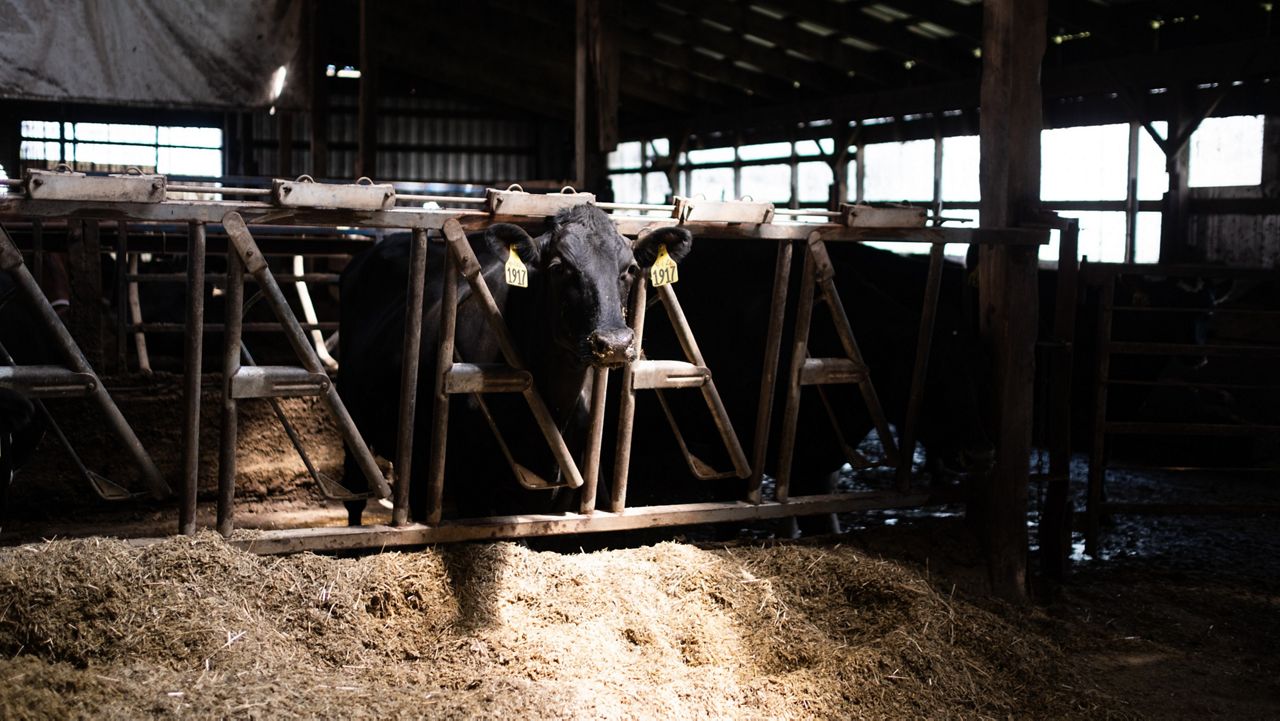The 2018 Farm Bill has been extended through 2024, which will avoid issues that would upend the dairy industry, but advocates say a new bill is needed as soon as possible given rising costs farmers face.
“It’s better than the alternative, but we’re still encouraging lawmakers to not wait another year. Let’s try and get this done early next year to provide some certainty for our farmers and to address some of the issues that they have experienced over the last four years,” New York Farm Bureau spokesperson Steve Ammerman said.
Without the extension, some of the policies included in the bill — specifically those that impact the dairy industry — would have reverted back to a 1949 law that sets milk prices relative to the 1910s.
U.S. Sen. Chuck Schumer said in a statement that dairy farmers can breathe a sigh of relief as they have avoided the so-called “dairy cliff.”
“I helped enact the Dairy Margin Coverage Program in the 2018 Farm Bill and I am proud to have secured this vital year-long extension while we work to develop the bipartisan Farm Bill in the next year,” Schumer said in a press release Friday.
But, inflation has been an ongoing issue for farmers and the 2018 Farm Bill does not reflect the current challenges in the market, Ammerman said.
“Inputs are up across the board for our farms as much as they are for everyone else. Fuel is high, fertilizer costs went up, machine parts are more expensive and we would like the Farm Bill to reflect the current state of our economy,” he said.
Additionally, there are concerns that are not addressed in the 2018 Farm Bill that the farm bureau wants included in the new legislation.
“We’re looking to address the milk marketing order and the pricing formula for dairy to try and modernize that,” Ammerman said.
Much of the Farm Bill focuses on large commodity crops such as corn and soybeans. But for New York, which is heavily saturated with fruit and vegetable producers, they would like to see expansion for specialty crop producers.
“We would love to see specialty crop programs expand on that as well and an increase in federal dollars spent on helping our farms better address climate change,” Ammerman said.
Republican U.S. Rep. Marc Molinaro said he supports the extension; however, he is advocating for changes to the full five-year reauthorization.
One of the changes he is pushing for is the Dairy Farm Resiliency Act that he proposed in June to strengthen the Dairy Margin Coverage Program by mandating production requirements be updated every five years. The current data is based off numbers from 2014, leaving some milk uninsured.
“We have to get it right. I’ve held Farm Bill listening sessions and 11 Town Hall meetings to give families, farmers and small businesses the opportunity to share with me what they want included,” Molinaro said in a statement.



